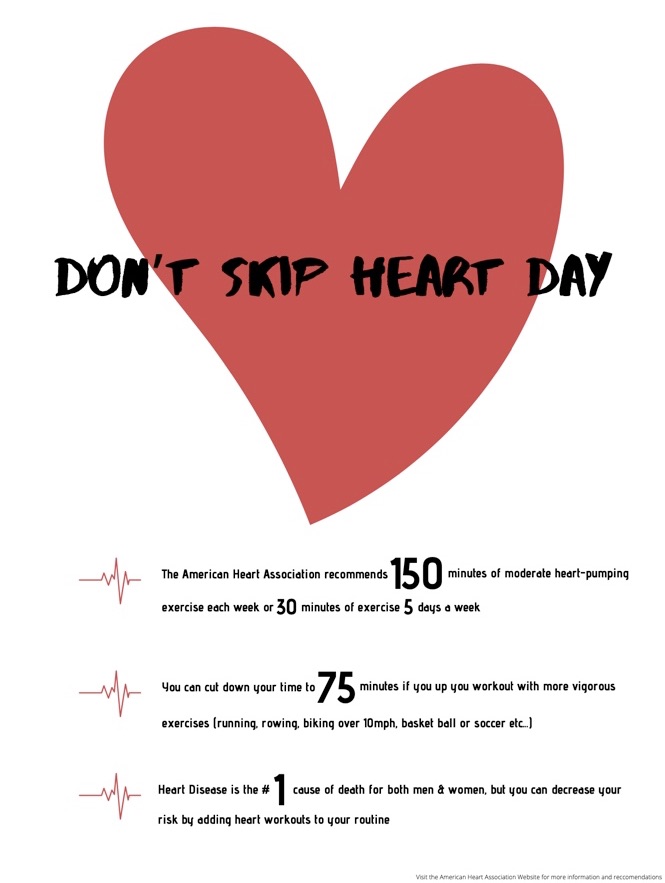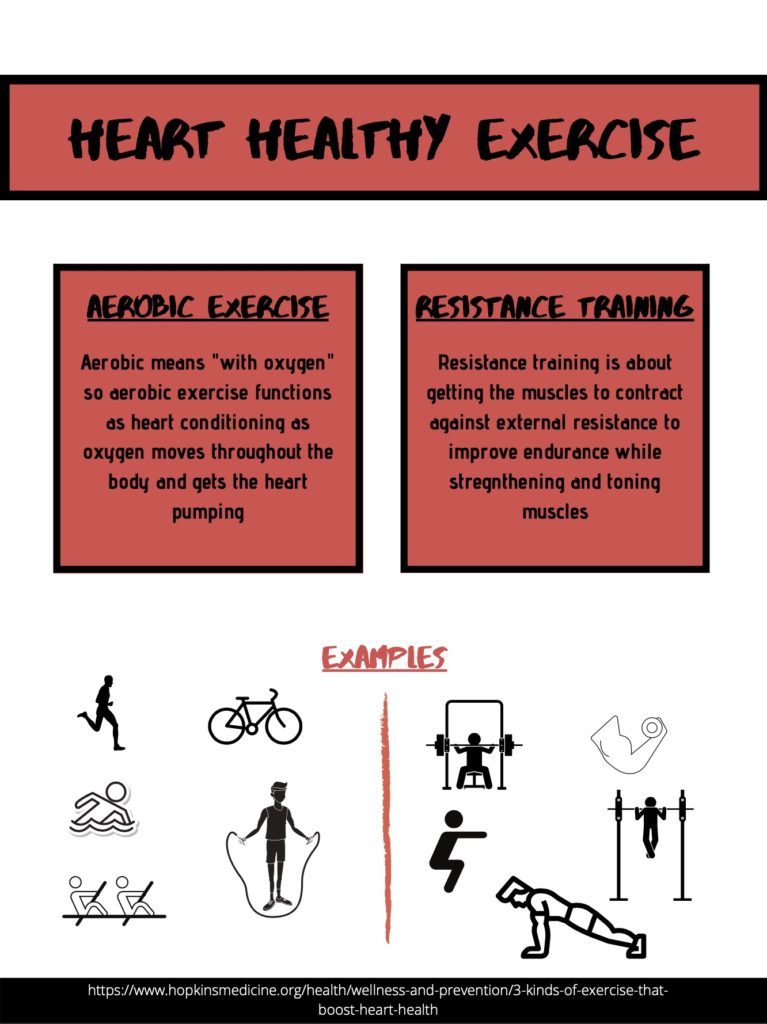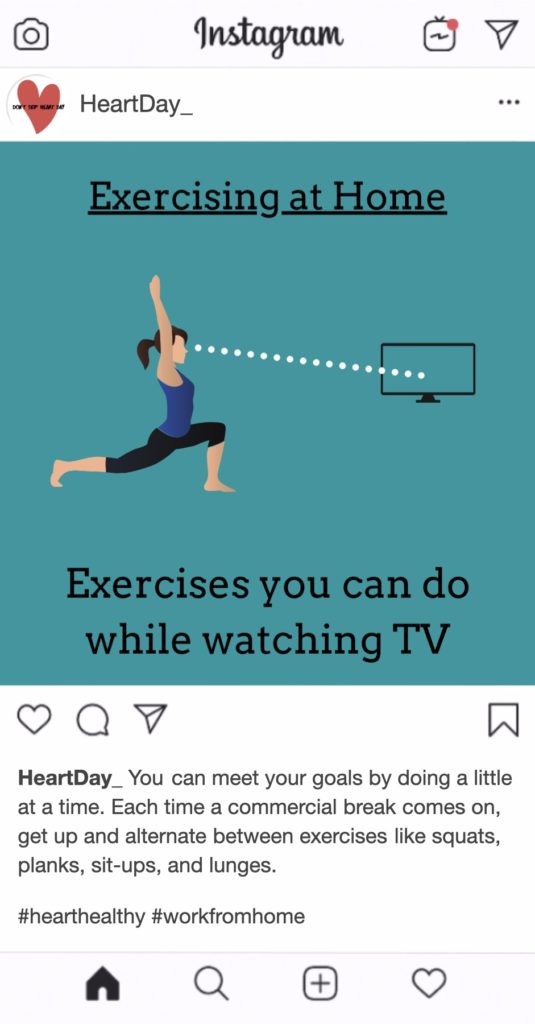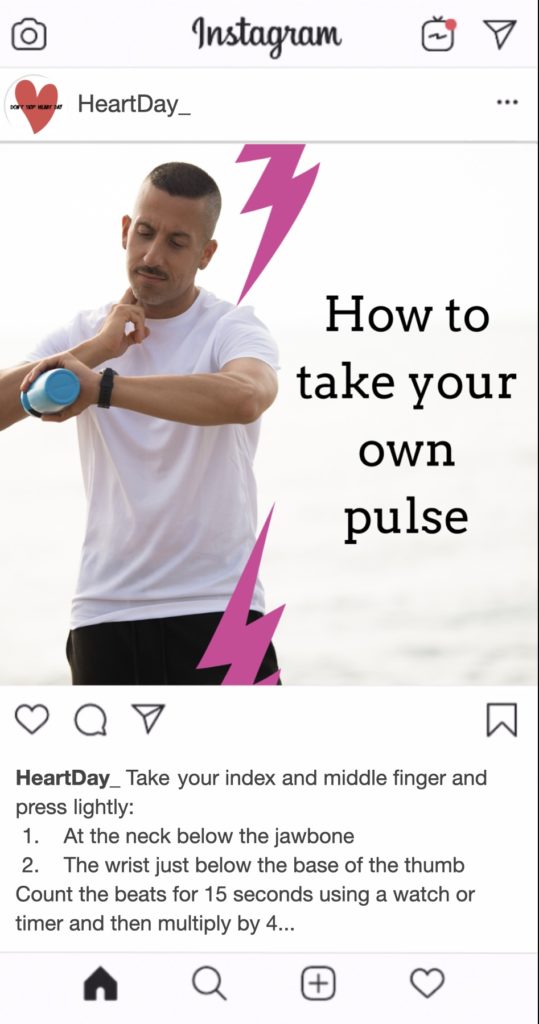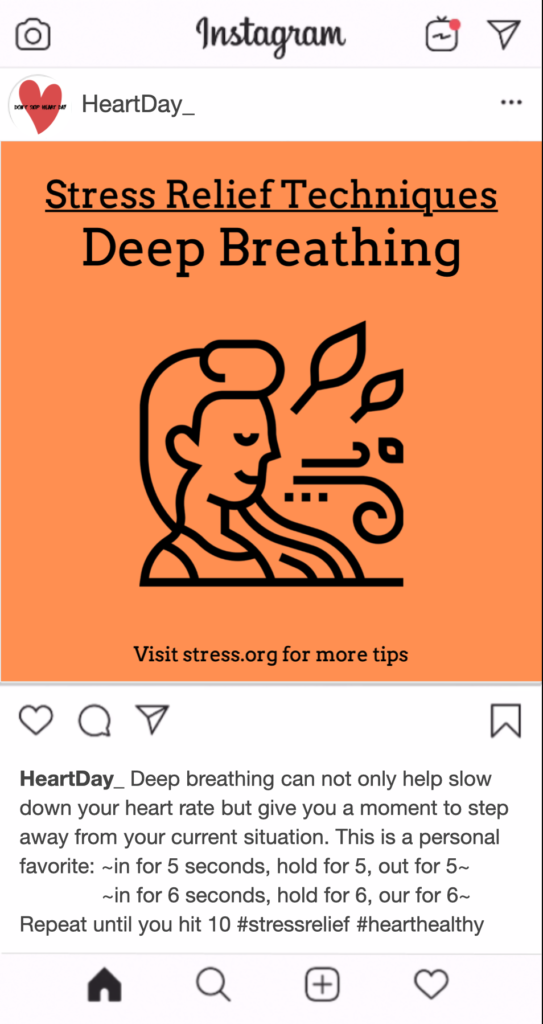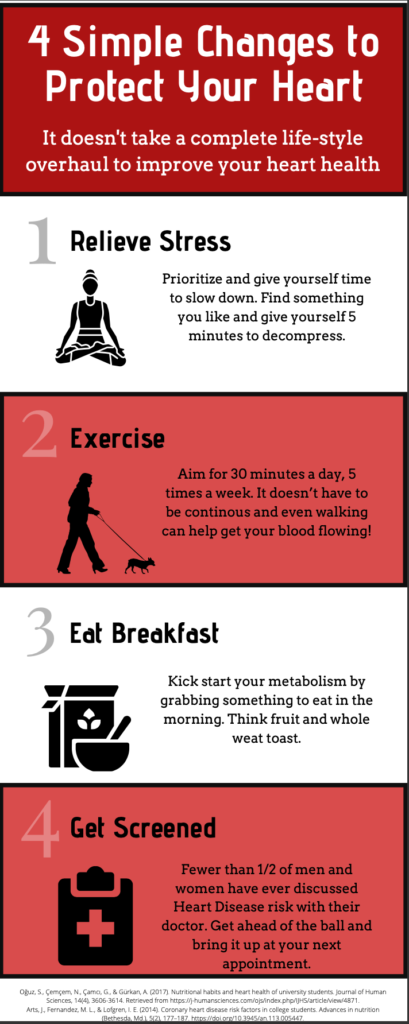
Heart Health for College Students
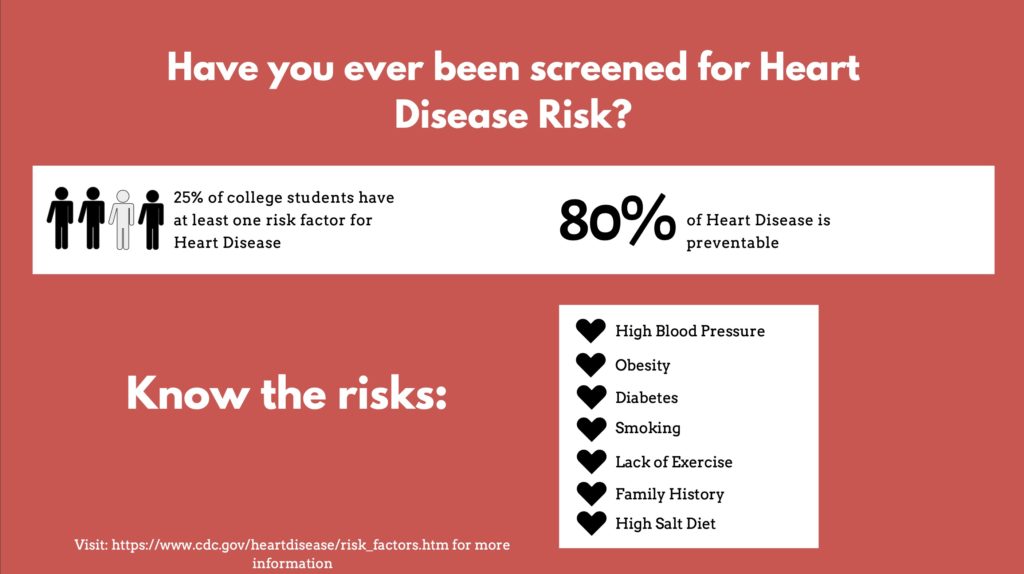
Heart Disease is the top cause of death globally, but while there are lots of heart health materials aimed at middle-aged
and older adults, there is little out there for college students. The reality is damage to your heart can occur at any age.
In fact, 1 in 4 18-24-year-olds have at least one risk factor.
- Diet
An unhealthy diet is a major risk factor for Heart Disease, and young adults tend to have unhealthy eating habits. Eating
higher quantities of added sugar and solid fats, 90% of college students also surpass the recommended daily salt intake. One
study found that only around 8% of college students get the necessary amount of fruits and vegetables.
2. Weight
Linked closely with diet is weight. About 33% of young adults are obese, which is dangerous because Heart Disease risk
increases by 2 to 4 percent each year that someone is obese. Perhaps this makes sense when you consider that only 1 in 4
college students get enough exercise.
3. Stress & Sleep
Stress and lack of sleep are not only direct risk factors for heart disease but a risk factor for unhealthy weight. Between
exams and workloads, a quarter of college students report high levels of stress. Only half get at least 7 hours of sleep a
night.
4. Blood Pressure
While few college students have high blood pressure in part because of their young age, 17% have pre-high blood pressure.
This means that while their blood pressure levels are within a normal range now, they are likely to pass the threshold if they
are not careful.
6. Family History
Finally, one of the most important predictors of Heart Disease risk is a family history of heart problems. Young people tend
not to worry about problems like Heart Disease as they believe they are far in the future, but knowing about your family
history can help you prevent heart disease from developing. You can take steps to get proper exercise, limit salt and
cholesterol intake, and mitigate stress.
Knowing your risk for Heart Disease early is the best protection against heart damage. You can take steps to get proper
exercise, limit salt and cholesterol intake, and mitigate stress. Talk to your doctor before it becomes a serious problem,
and get their advice.
1Arts, J., Fernandez, M. L., & Lofgren, I. E. (2014). Coronary heart disease
risk factors in college students. Advances in nutrition (Bethesda, Md.),
5(2), 177–187. https://doi.org/10.3945/an.113.005447.
2Oğuz, S., Çemçem, N., Çamcı, G., & Gürkan, A. (2017). Nutritional
habits and heart health of university students. Journal of Human
Sciences, 14(4), 3606-3614. Retrieved from
https://j-humansciences.com/ojs/index.php/IJHS/article/view/4871.
3Erin Vinoski Thomas, Jan Warren-Findlow. (2019) Body image,
self-esteem, and behavioral risk for chronic disease
among college students: Additional evidence for integrated prevention.
Journal of American College Health 0:0, pages 1-8.
